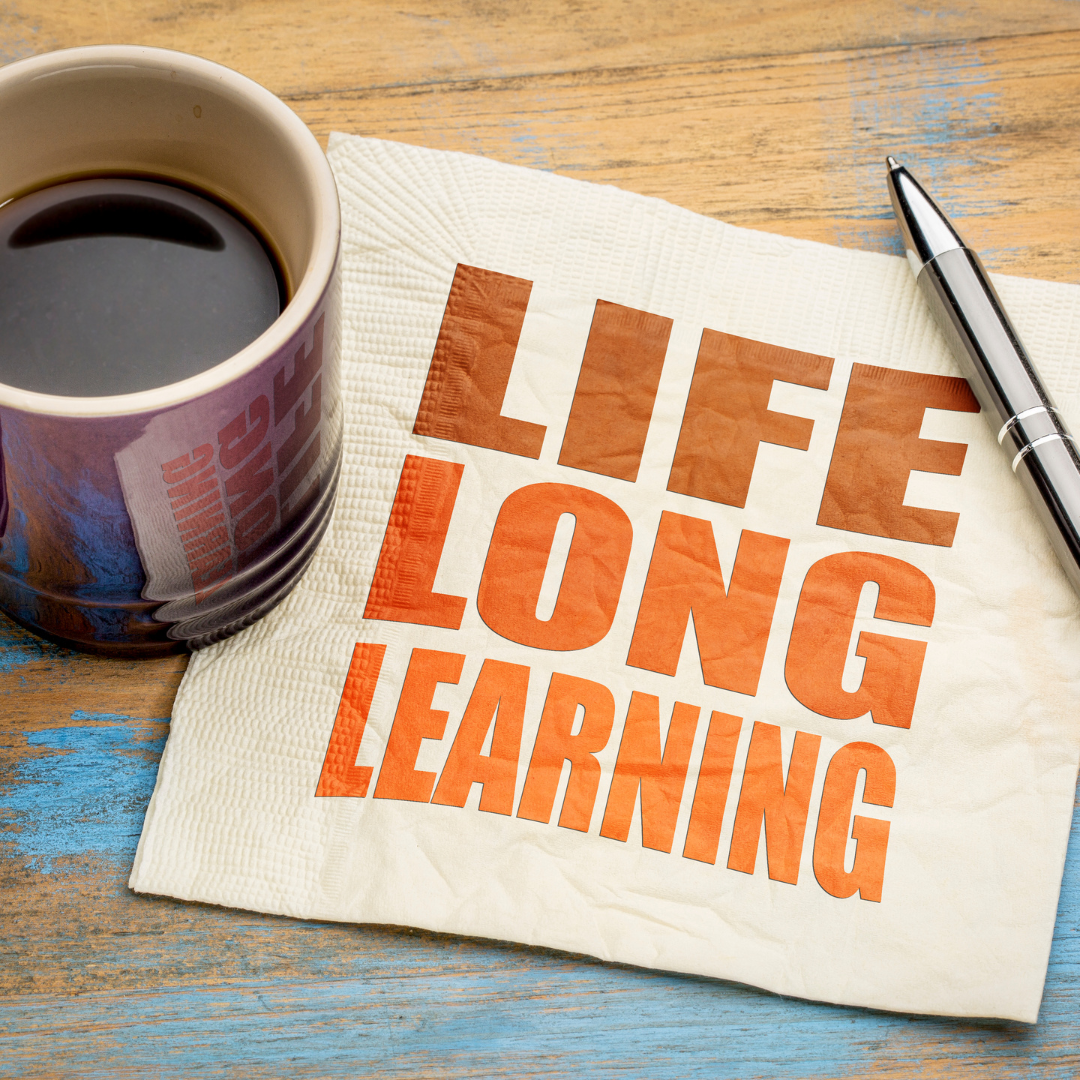What does it take to succeed in today’s world of work? When college grads start their careers, they often find themselves up against a job market that’s more competitive than they could have imagined. And add to that the complexity of today’s workplace, and you’ve got a recipe for a demanding professional life. But even though the job market has changed dramatically, one thing has stayed the same: the need to excel in your work.
Lifelong learning doesn’t just mean studying after college. It’s learning a new skill, continuing your education, developing key relationships, and continuing to grow professionally. And, it can mean having expertise in a certain field, something that sets you apart from your peers and helps you land that dream job.
What Is Lifelong Learning?
A lifelong learner is defined as an individual who understands and actively seeks opportunities to learn. These people understand that learning is a continuous process and has the ability to adapt to changes in the world. It’s never too late or too early to start learning.
Lifelong learning is a lifelong process. Never stop learning. You may never use all the information you pick up, but if you do, it will enrich your life, making you a more well-rounded individual. Learning is essential. It helps motivate you, gives you purpose, and makes you feel fulfilled. It has never been easier to connect with other people who share similar interests in today’s technology-driven age.
Even if you have landed a job, it’s important not to stop learning and upgrading your skills. This isn’t just about earning more or securing a better position in your career; knowledge truly is power, and there’s no end to it.
For example, if you’re in the IT sector and have completed your engineering degree, why not expand your skill set beyond what you learned in college? You could explore programs that teach about AI, cybersecurity, or the latest programming languages. Alternatively, if you are an entry-level medical assistant, you can aim for a more secure position, like becoming a certified nurse, by enrolling in CNA School & Certification programs, or similar ones.
In short, there is always room for learning and growth. All it takes is finding the right opportunities and having a clear vision of where you want to be in the future.
Benefits Of Lifelong Learning for Young People
- Expand your knowledge – Learning new things is always a good thing, and thanks to the Internet, you can learn almost anything you want for free. No matter what your interests are, you can probably find a class or course to expand your knowledge and heighten your enjoyment of a particular subject.
- Boost your employability – As a new college graduate, the thought of attending a university or college can seem intimidating. You are expected to take on rigorous coursework, but you also have to find a job. While many young people are skeptical of attending college, learning as much as you can while earning your degree could boost your future employability. As part of a lifelong learning mindset, consider continuing your education after graduating from college.
- Increase your life and work skills – Lifelong learning is a valuable asset in today’s fast-moving world. With new technologies always emerging, we all need to keep abreast of changes and trends in our field or new technologies. Perhaps you’ve taken classes to brush up on skills, or perhaps you’ve taken classes because you like learning. Either way, you’re creating a better situation for yourself at work or in your personal life, and it’s never too late to get started.
- Contribute to society in powerful ways – Lifelong learning is an ongoing process that is fundamental to living well. For some, life is all about learning and demanding more from life. Being a lifelong learner means continually challenging oneself to grow, seek knowledge, discover opportunities, and be open to new challenges. And this is not just an important part of your life, but society at large. By being a lifelong learner and contributing your skills and knowledge, you can contribute to the community in powerful ways.
Why Is Lifelong Learning Important to Young People?
It’s never too late to learn something new, which is why lifelong learning is important. It’s never too late to learn anything, which is why it is so important. Not everyone may agree with us, but we believe it’s important never to stop learning. While it’s hard to put a number on how much time you should spend learning something new, it’s never too late to learn something new, and never stop.
Young adults today face many challenges, and one of the biggest is staying relevant in the job market. Today’s job market is highly competitive, and young people may find it hard to find a job. But learning new skills can help boost a young person’s chances of finding a job and assist them in finding a career path they are interested in. By learning how to learn, young people can benefit from life-long learning.
Learning Is Lifelong, Not Just for School!
Many students begin college with the mindset that they will have learned everything they need to know by the time they graduate. However, this could not be further from the truth. While a student should focus on academics in college, there is so much more to learn outside of the classroom. Learning doesn’t end when school is out of session. In fact, as adults, we have the opportunity to continue learning throughout our entire lives. We may not always have the opportunity to learn new things, but there is always something we can learn.




